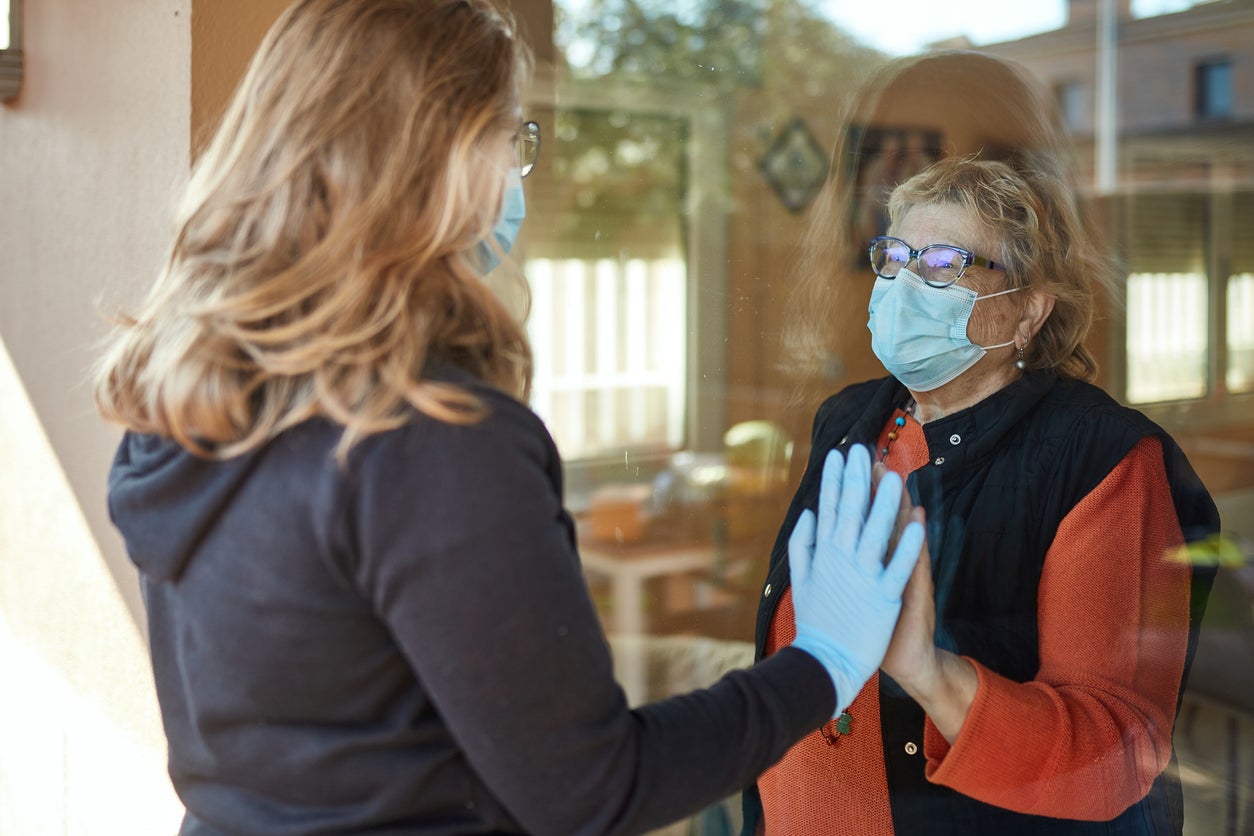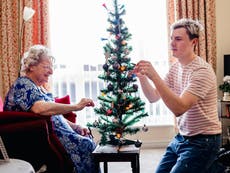Loneliness is a killer – so make sure you pick up the phone this Christmas
While many of us are looking forward to reconnecting with relatives over Christmas, around two million older people will be alone and isolated – but you can help

Your support helps us to tell the story
From reproductive rights to climate change to Big Tech, The Independent is on the ground when the story is developing. Whether it's investigating the financials of Elon Musk's pro-Trump PAC or producing our latest documentary, 'The A Word', which shines a light on the American women fighting for reproductive rights, we know how important it is to parse out the facts from the messaging.
At such a critical moment in US history, we need reporters on the ground. Your donation allows us to keep sending journalists to speak to both sides of the story.
The Independent is trusted by Americans across the entire political spectrum. And unlike many other quality news outlets, we choose not to lock Americans out of our reporting and analysis with paywalls. We believe quality journalism should be available to everyone, paid for by those who can afford it.
Your support makes all the difference.This year has been a lonely one. Hugs with extended family, chats with friends at the café or the pub, and the camaraderie of being in our workplaces are distant memories as this difficult year draws to a close.
While many of us are looking forward to rekindling relationships and reconnecting with relatives over Christmas, around two million older people will be alone and isolated. No one will be driving to their homes to visit, no one around to swap gifts with or to share the festive cheer. For them, Christmas is a bleak prospect.
The mental and physical health consequences of this are devastating. Loneliness and social isolation have been shown to be as damaging to someone’s health as smoking 15 cigarettes a day, with the problem more acute among elderly people.
But this difficult year has taught us to do things differently. We reached out and supported one another when things got tough and our lives took an unexpected turn. And as we come into the festive season we can continue that spirit of togetherness by making Christmas less bleak for older people, while continuing to protect them from Covid-19.
Staying connected over these next few weeks is one simple step we can all take to help. Our mums and dads, grannies and grandads have become more innovative and more tech savvy this year. They are connecting with family and friends using Zoom, FaceTime or other digital technology. Although there may be times when they’re accidentally on mute or have the camera at the wrong angle, they are able to see our faces and connect with us. There is always the option of picking up the phone and giving them a call as well. Either way, any connection will dilute the loneliness and isolation our elderly relatives may be experiencing.
It’s also vital that they know the phone numbers of the first people to contact in an emergency. Numbers for local services and helplines should be written down somewhere, should they need more professional support.
A chat on the doorsteps of our elderly neighbours will ensure they stay connected, too. Asking how they’re doing and offering them some festive fayre, or a warming drink, will bring a sense of connection and belonging, something that may be missing from their homes. Some communities are planning more frequent carolling in their neighbourhoods during the Christmas period, which is a very welcome initiative.
Older people don’t like being a drain on others. Their self-reliance means they won’t necessarily reach out for help when they need it. They might instead choose to suffer in silence. But we can help in the run up to Christmas by checking that our elderly family members and neighbours have enough food and that they are able to keep their homes warm throughout the festive season.
Getting out in the fresh air and breaking up the day with a stroll round the block or in a local park is one practical step older people can take. Wrapping up warm and enjoying the crisp winter weather in daylight hours will mean it’s safer than walking at night. It will also increase the chances of seeing others to exchange greetings – a great way to instil a sense of togetherness.
Unfortunately, for many older people loneliness isn’t just for Christmas. As we move into what hopefully will be a less difficult year, my Christmas wish is that the government will act on the recommendations made in the position paper we produced with the British Geriatrics Society on social isolation and loneliness. These include designing social prescribing services that do not exclude those older people who are unable to leave their homes, and the introduction of loneliness initiatives to better support older people who may need one-to-one support rather than group-based therapies.
We can do our bit to help over the coming months. But the government must do all that they can to reduce loneliness in our society and ensure older people living with complex physical and mental illness get the help and support they need.
Dr Mani Krishnan is part of the Royal College of Psychiatrists Faculty of Old Age Psychiatry



Join our commenting forum
Join thought-provoking conversations, follow other Independent readers and see their replies
Comments